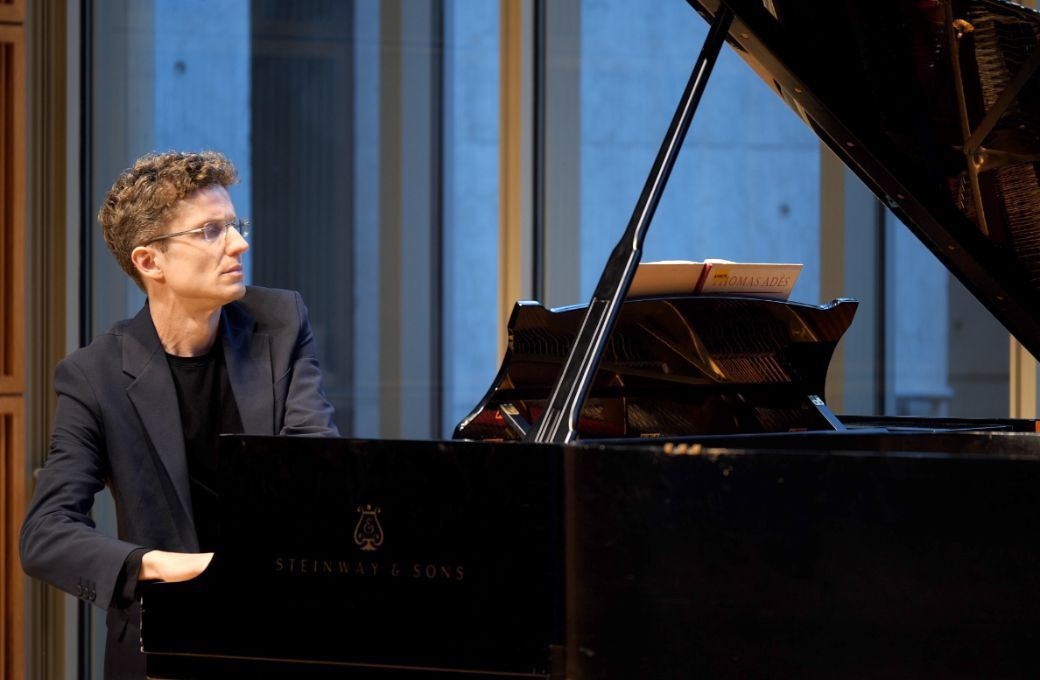Normally, a program that opens with an 18th-century liturgical celebration and ends on the doorstep of World War 2 shouldn’t hold together. Especially with hefty doses of contemporary music and American ragtime in between. But normal programming doesn’t hold much sway at Chamberfest Cleveland, where Hungarian pianist Zoltán Fejévári provided a through thread for an evening of powerful contrasts, invigorating performances and delightful surprises.
No piano was needed for the opening piece, Bach’s Jauchzet Gott in allen Landen. Instead, the spotlight was on soprano Sarah Shafer, who sang the church cantata like a set of opera arias – bright, peppy and very expressive. Her voice was a bit sharp for the material, though captivating in her ability to hold and caress a note. A string quartet provided animated accompaniment, which a lackluster showing by trumpeter Brandon Ridenour failed to match. The balance was off for much of the piece as well, with double bassist Nathan Farrington often dominating the sound and harpsichordist Roman Rabinovich barely audible.
Fejévári took the stage for Thomas Adès’ solo piano piece Darknesse Visible, a shattering collision of high-pitched trills, jabs and dark sonorities. In keeping with the material, Fejévári gave the piece an icy aura with a brittle edge, breaking off notes like shards of glass. The piece never coalesces in any conventional sense, and Fejévári showed a sophisticated understanding and style with a deliberate, steady approach that brought order to an essentially rhythmless composition.

Pianist (and Steinway Artist) Yaron Kohlberg joined Fejévári for a head-spinning turn to another modern work, William Bolcom’s The Garden of Eden. Purportedly a portrayal of the original fall from grace, the piece plays more like a mash-up of ragtime rhythms and variations audaciously mixed with inflections of jazz and playful knocking on the piano frame. Kohlberg brought a jazz player’s sensibility to the performance with smart phrasing and lively rhythms, supported by complementary lines from Fejévári. Dashing off the third movement (aptly titled The Serpent’s Kiss) in double- and triple-time, the two men took the audience on a joyride that ended with everyone energized and on their feet.
For all that, the real masterpiece of the evening came after intermission – Mieczysław Weinberg’s Piano Quintet in F minor, performed brilliantly by Fejévári and string players Diana Cohen and Njioma Grievous (violins), Samuel Rosenthal (viola) and Sterling Elliott (cello). Composed in 1940, the piece opens in dark foreboding, then changes in texture and character almost every minute throughout five movements before exploding into a concluding blitzkrieg that unexpectedly fades to a soft finish. The players shone in the technical challenges (one movement is almost entirely pizzicato), with Rosenthal and Elliott particularly good in their solos. Fejévári outdid himself with sharp, dramatic work at the keyboard, and Cohen was impressive throughout as the lead string player. Tight, disciplined and finely detailed, the performance offered a deep reading that was expertly played, especially for an ad hoc ensemble.
Along with variegated programming, Chamberfest Cleveland offers an astute mix of nationalities and ethnicities in its performing lineups, and in that vein it’s worth noting that three of the musicians in this concert were Black. From a musical standpoint, it made no difference – every player in the festival came with excellent credentials and first-rate skills. But in a notoriously hidebound profession, it was refreshing to see a bit of the real world on the stage for a change.


